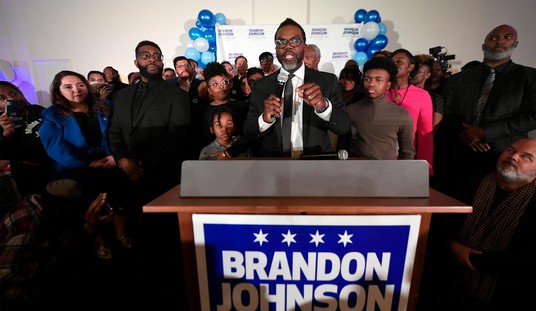No one likes a bully, but are speech laws the solution? Reason TV takes up the argument in its Nanny of the Month video, thanks to a law proposed by a New Mexico legislator that would make a crime out of verbal bullying … of a child, or a politician, or anyone experiencing “substantial emotional distress” from criticism. Sounds like a perfect way for incumbents to silence the opposition, no?
School’s out for summer and Nanny of the Month is taking the opportunity to salute the zealots within the otherwise laudable anti-bullying movement. They take a real problem–few things are more loathsome than picking on the vulnerable–and bungle the response, as has been done with most every “get tough!” effort from D.A.R.E., the failed anti-drug program, to all the idiotic iterations of the “zero tolerance” fad.
Do we really need to ban trash talking at high school sporting events? Do we really need attorney general investigations of foul-mouthed jocks? And for the love of whatever remnants of common sense remain in our schoolhouses and statehouses, do we really need to fight bullying with jail cells?
Not only did this month’s top nanny introduce a bill that would criminalize speech deemed to be bullying–up to a year in the clink!–she introduced a bill that, according to UCLA First Amendment scholar Eugene Volokh, is not limited to speech about children (despite it being touted with the typical “for the children!” justifications). Volokh notes that the bill, if passed, could punish harsh speech directed at journalists, academics, celebrities, politicians, and the like, if the speech results in “substantial emotional distress.”
Presenting the Nanny of the Month for June 2013: New Mexico State Rep. Mary Helen Garcia!
Actually, the issue of punishing speech that causes “substantial emotional distress” for public figures has already been addressed, even in civil complaints, by Hustler Magazine v Falwell. The court ruled in that case that such speech is only actionable when it contains a “defamatory falsehood … made with knowledge that it was false or with reckless disregard of whether it was false or not.” Without that standard on public figures, the ability to criticize public figures would be essentially dead, and so would liberty. “Were we to hold otherwise,” the Supreme Court explained in its unanimous decision, “there can be little doubt that political cartoonists and satirists would be subjected to damages awards without any showing that their work falsely defamed its subject.”
Granted, that standard doesn’t necessarily apply to private figures publicly maligned or bullied, but publicly is another term of art, too. Yelling “You swing like a girl!” at a Little League game at an opposing player may not be the highest example of sportsmanship for a youngster, but it’s hardly something that requires intervention by law enforcement or the courts … not even when the parents yell that kind of nonsense, which is more often the case.
Even more to the point, these are issues that should be handled by private interaction, not by law enforcement. If the bullying gets physical, then assault and battery is occurring, and that’s another matter entirely, but verbal bullying is one of the less-pleasant consequences of free speech. It doesn’t require court intervention, but better supervision and exercise of authority, be it parental, educational, or both. Otherwise, we will soon find ourselves in the position of filling court dates up with complaints that come down to “He called me a boogerhead!”
The old adage “Sticks and stones may break my bones, but names will never hurt me” has a lot more wisdom than we realize. Don’t give name-calling power it doesn’t otherwise have — especially not the power to gag us, as these laws eventually will do.








Join the conversation as a VIP Member